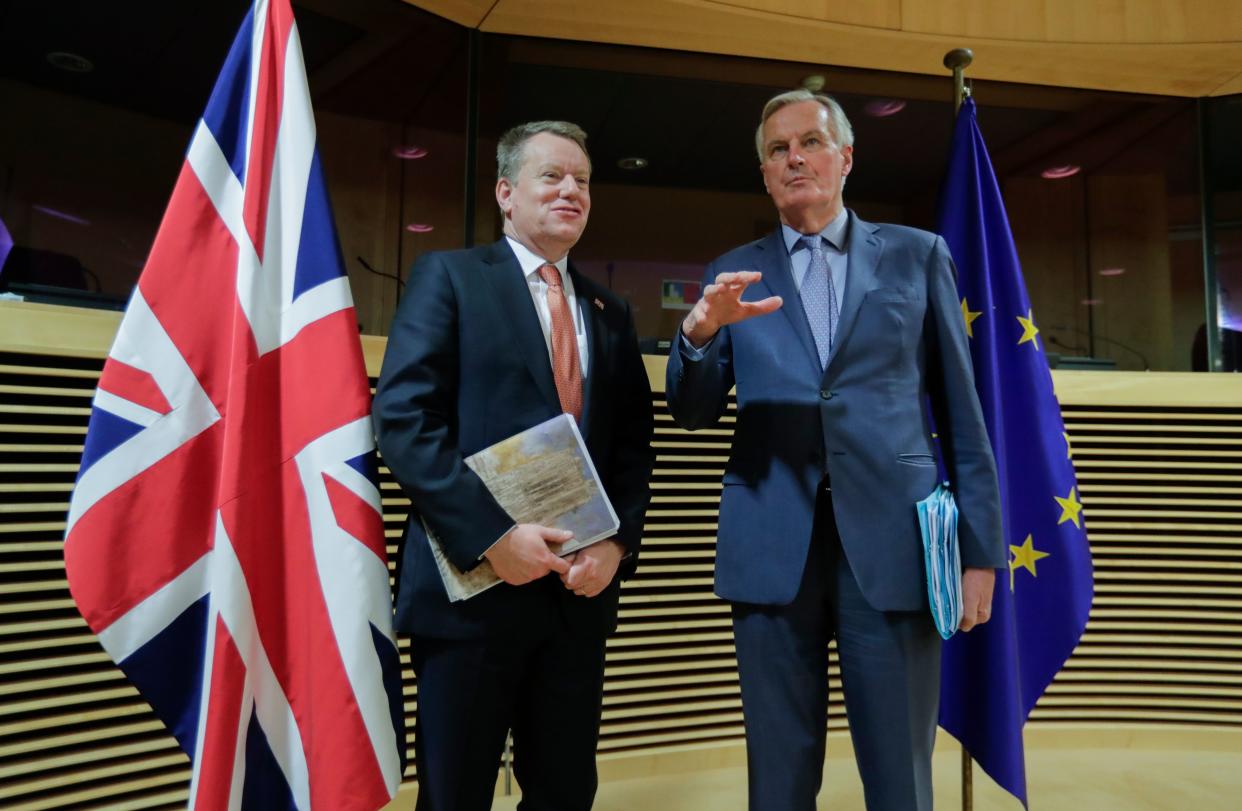Coronavirus forces UK and EU to delay Brexit trade talks

The second round of post-Brexit trade talks between the UK and the European Union has been delayed due to the coronavirus pandemic.
“In light of the latest guidance on coronavirus, we will not formally be convening negotiating work strands tomorrow in the way we did in the previous round,” a UK government spokesperson said on Tuesday.
Negotiating teams from both sides were on Wednesday due to discuss the future trading relationship between the two parties ahead of the UK’s departure from the bloc on 31 December.
According to Bloomberg, the discussions were due to take place by video link, and may resume later in the week.
The spokesperson said that the UK government still expected to share a draft free trade agreement, alongside the proposed texts of a number of legal agreements, with the EU in the “near future.”
“Both sides remain fully committed to the negotiations and we remain in regular contact with the European Commission to consider alternative ways to continue discussions, including looking at the possibility of video conferencing or conference calls, and exploring flexibility in the structure for the coming weeks,” the spokesperson said.
The UK is still insistent that, even in light of the spiralling coronavirus fallout, the country will leave the transition period at the end of 2020.
“The transition period ends on 31 December 2020. This is enshrined in UK law,” the spokesperson said on Tuesday.
If both sides are unable to strike a trade deal and the UK does not seek an extension to the transition period, both sides will default to trading on World Trade Organization terms on 1 January 2021.
This would result in the imposition of tariffs and quotas.
The UK has said that it wants an arrangement resembling that which currently exists between Canada and the EU.
This would prevent the imposition of most tariffs, but would likely result in checks and significant paperwork on trade between the EU and UK.


